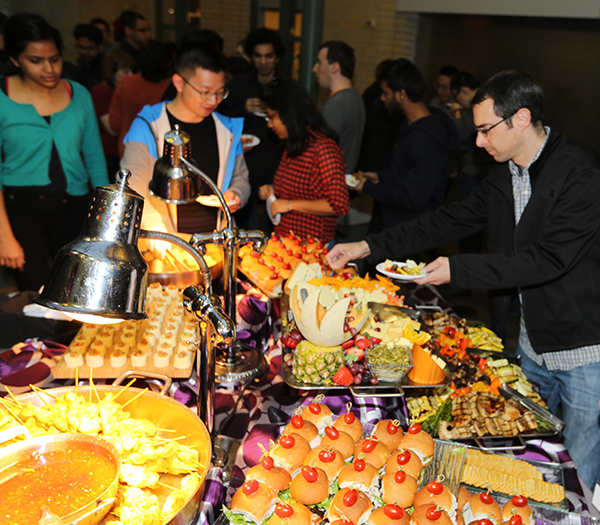Carnegie Mellon University
Belief Space Planning for Reducing Terrain Relative Localization Uncertainty in Noisy Elevation Maps
Abstract Accurate global localization is essential for planetary rovers to reach science goals and mitigate mission risk. Planetary robots cannot currently use GPS or infrastructure for navigating, and hence rely on terrain for determining global position. Terrain relative navigation (TRN) compares planetary rover-perspective images and 3D models to existing satellite orbital imagery and digital elevation [...]
Robotics Institute Winter Party
All RI faculty, staff, students and visitors are invited to the Robotics Institute Winter Party!
Comparing apples and oranges: Off-road pedestrian detection on the NREC agricultural person-detection dataset
Abstract: Person detection from vehicles has made rapid progress recently with the advent of multiple high-quality datasets of urban and highway driving, yet no large-scale benchmark has been available for the same problem in off-road or agricultural environments. In this talk, we present the NREC Agricultural Person-Detection Dataset to spur research in these environments. It [...]
Carnegie Mellon University
Computational Design Tools for Accessible Robotics
Abstract: A grand vision in robotics is that of a future wherein robots are integrated in daily human life just as smart phones are today. Such pervasive integration of robots would greatly benefit from faster design and manufacturing of robots that cater to individual needs. However, robots of today often take years to be created [...]
Carnegie Mellon University
Predictive Corrective Networks for Action Detection
Abstract: Although computer vision has seen significant advances in static image analysis, the relatively slow advances in video tasks such as action detection suggest we're struggling to build effective temporal models. In this talk, I will present a few main ideas that drive contemporary approaches, such as "two-stream networks" and "3D" convolutional networks. I'll also [...]
Adaptive Information Gathering via Imitation Learning
Abstract: In the adaptive information gathering problem, a robot is required to select an informative sensing location using the history of measurements acquired thus far. While there is an extensive amount of prior work investigating effective practical approximations using variants of Shannon’s entropy, the efficacy of such policies heavily depends on the geometric distribution of [...]
Deep Structured Models for Human Activity Recognition
Abstract: Visual recognition involves reasoning about structured relations at multiple levels of detail. For example, human behaviour analysis requires a comprehensive labeling covering individual low-level actions to pair-wise interactions through to high-level events. Scene understanding can benefit from considering labels and their inter-relations. In this talk I will present recent work by our group building [...]






